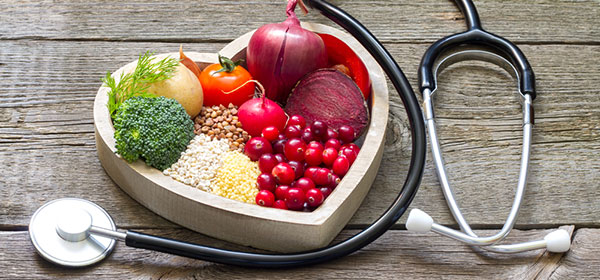High cholesterol is a major risk factor for heart disease and some types of stroke. If your cholesterol levels are too high, you may be on medication to treat it. However, there are some diet and lifestyle changes you can make to help reduce cholesterol naturally and perhaps lower the dosage of medication you require.
Cut out trans fats
Trans fats are a particularly nasty fat that increases LDL, or ‘bad’ cholesterol levels and decreases ‘good’ HDL cholesterol levels, increasing the risk of cardiovascular disease (CVD) and diabetes. Trans-fatty acids are created by treating vegetable oils with hydrogen, which causes the liquid oil to hold its solid form at room temperature. This helps food products like doughnuts, biscuits and cakes hold their shape and extend their shelf life. Deep-fried food from takeaway restaurants also often contain trans fats. Check the ingredients list on packaged foods for ‘hydrogenated oils’ or ‘partially hydrogenated vegetable oils’ and avoid foods with these.
Lose weight
It may sound daunting, but you don’t have to lose very much weight to significantly lower your cholesterol. If you are overweight, losing just 4.5kg can cut your LDL cholesterol by eight per cent. An eating plan that allows 1000-1200 calories a day will help most women lose weight comfortably, while men can eat between 1200-1600 calories a day and still lose weight.
Exercise
As well as improving your diet to lose weight, you can also improve your exercise regimen. When you exercise regularly, your cholesterol numbers will improve. To protect your heart, get an average of 40 minutes of moderate to vigorous aerobic activity three or four times a week. A combination of aerobic exercise and strength training is the best way to reduce your heart disease risk.
Increase soluble fibre in your diet
Soluble fibre can help reduce the amount of cholesterol absorbed through the small intestine. Soluble fibre is found in oats, legumes (split peas, dried beans such as red kidney beans, baked beans and lentils), fruit, vegetables and seeds. Apples, prunes and beans are particularly high in soluble fibre. Foods high in these fibres can also help you feel full, reducing your desire to reach for unhealthy snack food.
Eat foods rich in omega-3 fatty acids
Omega-3 fatty acids, found mainly in fish and shellfish, have become one of the great weapons in lowering cholesterol. If you can eat fish between two to four times a week your cholesterol will drop, not only because of the omega-3 fatty acids, but also because it will likely reduce your red meat intake, which can be heavy in saturated fats. If that much fish in your diet seems like too much, you can always take omega-3 supplements such as fish oil or krill oil.
Spice up your life
Research shows that eating between half a clove and one full clove of garlic per day can lower your cholesterol by up to nine per cent. Other herbs and spices that help improve cholesterol levels are cumin, ginger, black pepper, coriander and cinnamon.. The extra seasoning also lowers your appetite, which can also help with your weight-loss objective.
Learn more at WebMD
Related articles:
Cholesterol explained
Cholesterol medication controversy
Cholesterol increases Alzheimer’s risk

